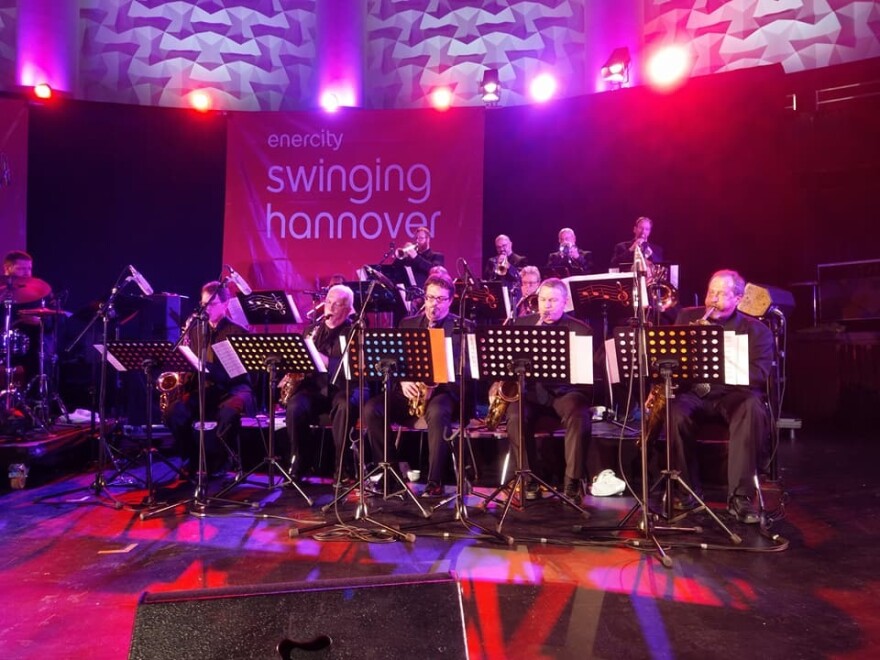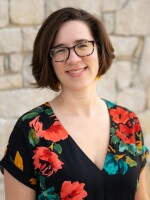Kansas City likes to boast that it’s internationally recognized for jazz. A concert at the Gem Theater on Thursday provides some evidence.
“Our musicians are everywhere in the world. We are pretty famous for our musicians,” says vocalist Deborah Brown, a Kansas City native and one of the instigators of Jazz Sister Cities, a partnership between musicians in Kansas City, Missouri, and Szczecin, Poland.
Kansas City already has civic relationships with 13 sister cities around the world, but this is the first purely musical relationship, unrelated to City Hall.
Thursday’s performance features Brown, Polish tenor saxophonist Sylwester Ostrowski and the Kansas City Jazz Orchestra. Alto saxophonist Bobby Watson appears as a special guest and David Basse hosts.
Other special guests: 14 representatives from Poland, who join representatives from Kansas City to officially announce the new Jazz Sister Cities organization.
It’s something Brown and Ostrowski have been working on for years.

Brown’s career has taken her all over the world, performing with a who’s who of jazz greats. She makes her home in Kansas City and serves as both ambassador of music and cultural liaison between Kansas City and Europe.
Over the last few years, she says, “I’ve been focused on getting as many Kansas City artists across the ocean to visit these venues that I play.”
She has invited Watson and fellow vocalist Kevin Mahogany, both international touring artists, to perform with her in Europe (Mahogany died in December 2017), and has mentored younger musicians with international aspirations, such as trumpeter Herman Mehari and drummer Ryan Lee.
Conversely, she encouraged European musicians, such as Bram Wijnands and Jurgen Welge, to make their homes and careers in Kansas City decades ago.
She has also worked and performed with Ostrowski, who serves is a cultural attaché for Szczecin, for about four years. He is featured on Brown’s latest album, and performed with the Kansas City Jazz Orchestra when they were in Europe.
“(Ostrowski) is tireless in his efforts to bring great music to his city and to broaden its reach globally,” writes Clint Ashlock, the Kansas City Jazz Orchestra’s artistic director, in an email to KCUR.
“It is a very strong connection,” Brown says of the relationship between Kansas City and Szczecin, which has its own robust jazz history.
In 2016, Ostrowski led a delegation from Poland to visit Kansas City. The entourage interviewed Kansas City officials, including Mayor Sly James, and visited famous jazz landmarks, filming Kansas City performers in venues such as The Blue Room in the 18th & Vine District.
The American Jazz Museum’s now-former director, Cheptoo Kositany-Buckner, has been involved in the project since last year, making at least three trips to Poland to develop the project. Kositany-Buckner resigned from the jazz museum in late April, after a consultants’ report, and subsequently the Kansas City Council, called for new leadership and direction at the financially troubled museum. Also in April, Kositany-Buckner filed paperwork incorporating Jazz Sister Cities as a nonprofit in the state of Missouri; she has been quoted in the Polish press saying she was going to fully devote herself to the Jazz Sister Cities project. (Kositany-Bucker did not immediately respond to KCUR’s request for comment.)
Jazz Sister Cities was first announced on May 11 at a concert in Szczecin, where Brown and Ostrowski performed with the Kansas City Jazz Orchestra.

Poland had not originally been scheduled as a stop on the big band’s first European tour, which included indoor and outdoor performances at the Swinging Hannover Festival in Hannover, Germany, which is already a sister city to Kansas City.
However, when Brown learned that the group was going to be in Hannover at the same time she was going to be in Poland working with Szczecin Jazz, she says, “It was an opportunity that I pounced on.”
Even though the festival in Szczecin (which included a performance by Watson) was technically finished, she encouraged the organization to host the Kansas City Jazz Orchestra’s performance.
“Naturally, the Kansas City Jazz Orchestra fit in perfectly,” she says.
“What we strive to do, is something we take deeply to heart: performing music that all people can identify with,” Ashlock writes, “that makes people feel good and happy, that has artistic merit and a creative expression of what Kansas City jazz music has been and currently is.”
While in Poland, they also performed a concert at a winery in Banie, and a trio from the orchestra performed some Bird for passers-by in a park in Szczecin.
But the Kansas City Jazz Orchestra’s reception in Europe was unlike anything they typically receive at home. Tens of thousands of people watched them perform in Hannover, and other shows earned media attention on television and radio and in print.
“We [were on] the front page of the newspaper in Poland,” says Brown.
“Anytime you are representing your city elsewhere or locally, it becomes a ‘mission of goodwill,’” writes Ashlock. “We took to heart the idea of representing Kansas City, and especially Kansas City jazz music.”
Jazz Sisters Cities intends to add more cities to the organization in preparation for the centennial of Charlie Parker’s birth (he’s known as “Charliego Parkera” in Polish) in 2020. Brown and Ostrowski laid that groundwork with recent performances in Sweden and Vienna.

The organization will also focus on educational opportunities for students in both cities.
“What we have here in Kansas City is really a treasure, that people around the world hold dear and we, as a culture within Kansas City, need to recognize that and help our children to understand this culture and keep it going,” Brown says.
The Jazz Sister Cities effort comes after Kansas City’s recent recognition as a Creative City of Music by the United Nations Educational, Scientific, and Cultural Organization (UNESCO). Kansas City is the only city in the United States with that designation, and in June, representatives from Kansas City who were involved in that effort travel to Poland to receive the designation at the Creative Cities annual meeting.
And though the UNESCO designation is separate from both the Kansas City Jazz Orchestra’s European tour and the Jazz Sister Cities project, Ashlock writes, “To recognize Kansas City as something that it already has been is pretty great.... hopefully the city will utilize this designation to promote the music happening here.”
It’s also a mark of faith in the art form, which survives even when clubs fold or institutions such as the American Jazz Museum suffer from poor management and public criticism.
“I think we all have a sense of responsibility to represent our music, our music's heritage, our music's passion and soul, always,” Ashlock writes. “Even if one organization might be struggling, we have to be positive – especially about the music – and strive to pick up and shoulder the burden until what has slipped gets back up.”
After all, he notes, “Jazz itself should be representative of togetherness and freedom.”
Building Cultural Bridges Through Jazz, 8 p.m. Thursday, May 31, at the Gem Theater, 1615 East 18th Street, Kansas City Missouri 64108.
KCUR contributor Libby Hanssen writes the culture blog Proust Eats A Sandwich. Follow her on Twitter, @libbyhanssen.
KCUR arts reporter Laura Spencer contributed to this report. You can reach her on Twitter at @lauraspencer.





